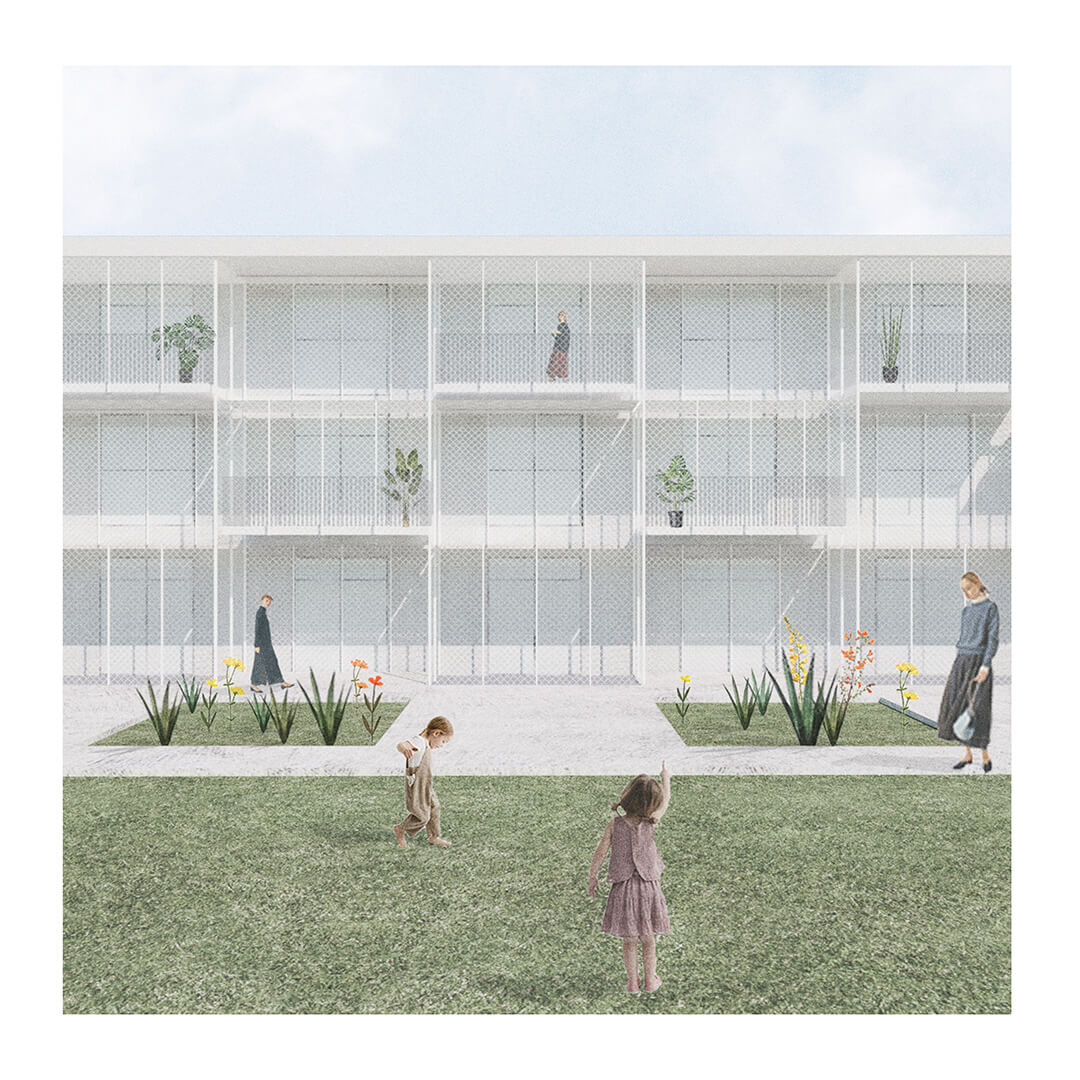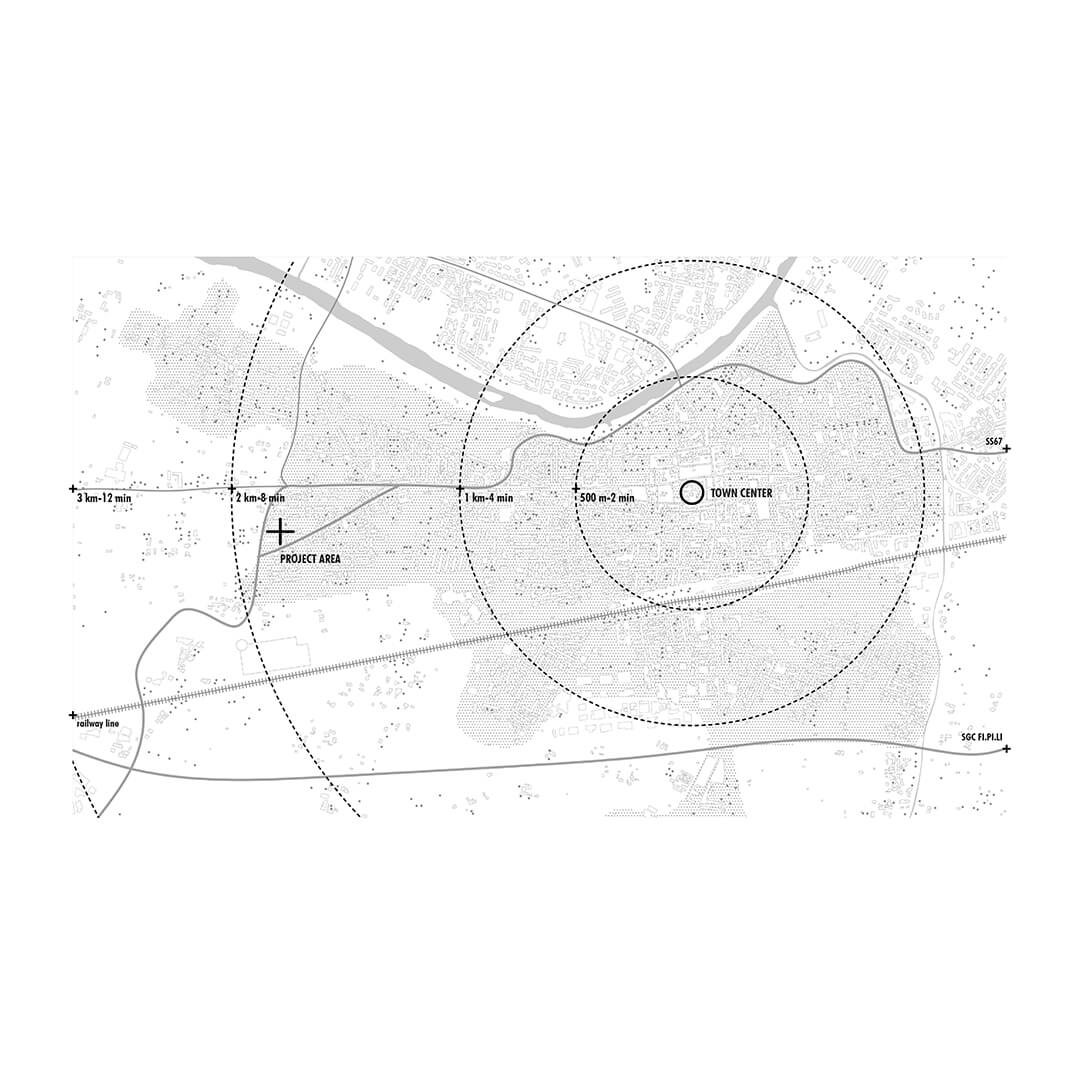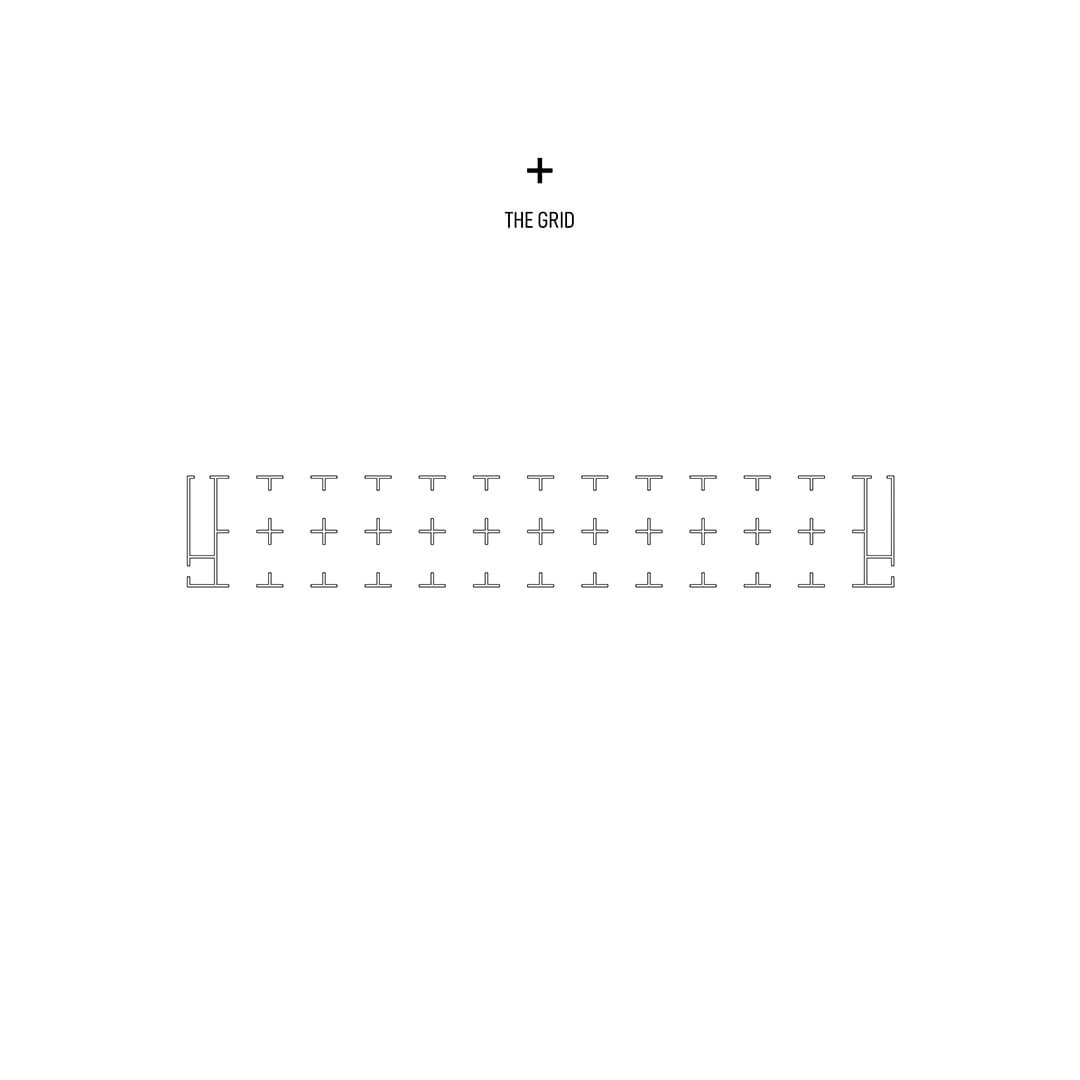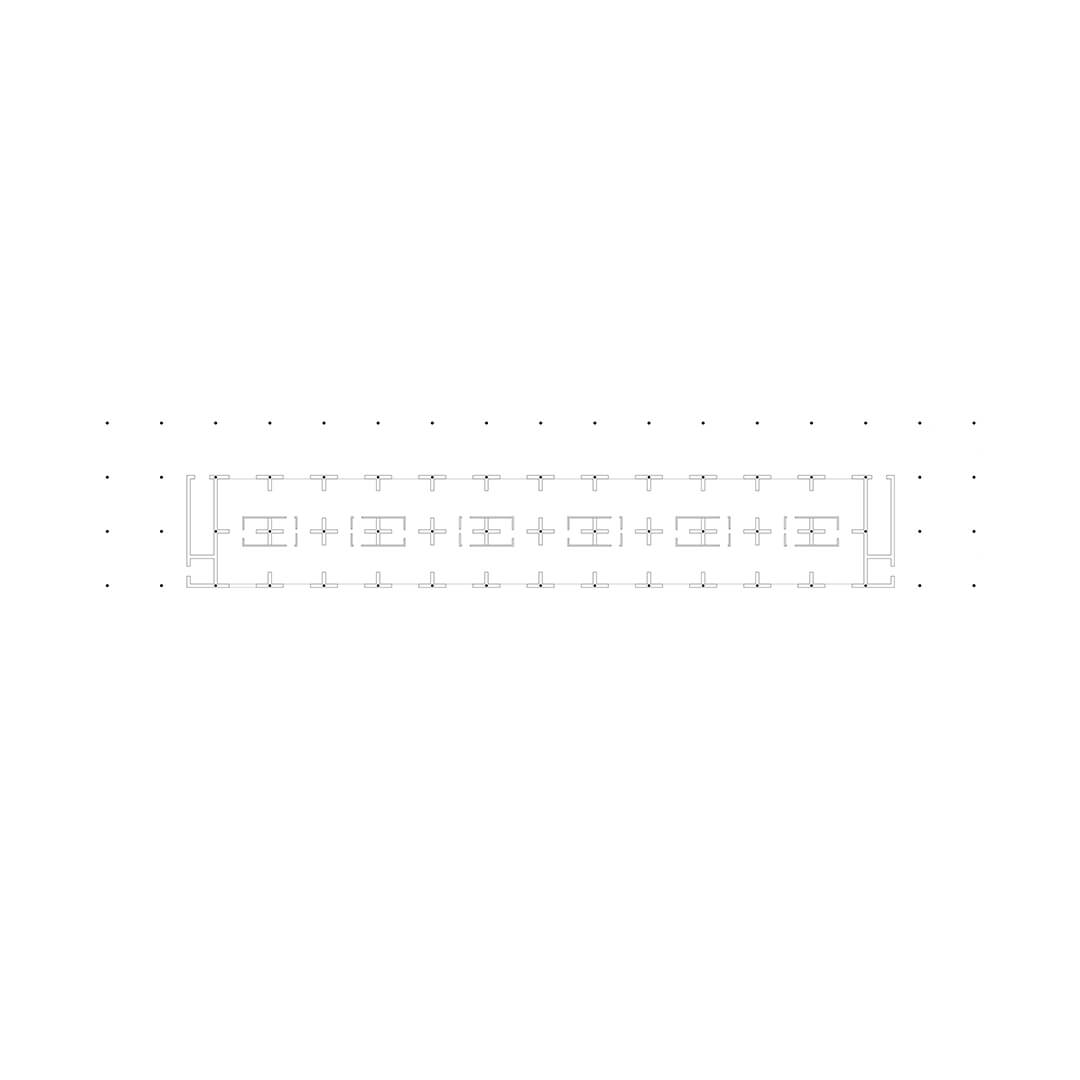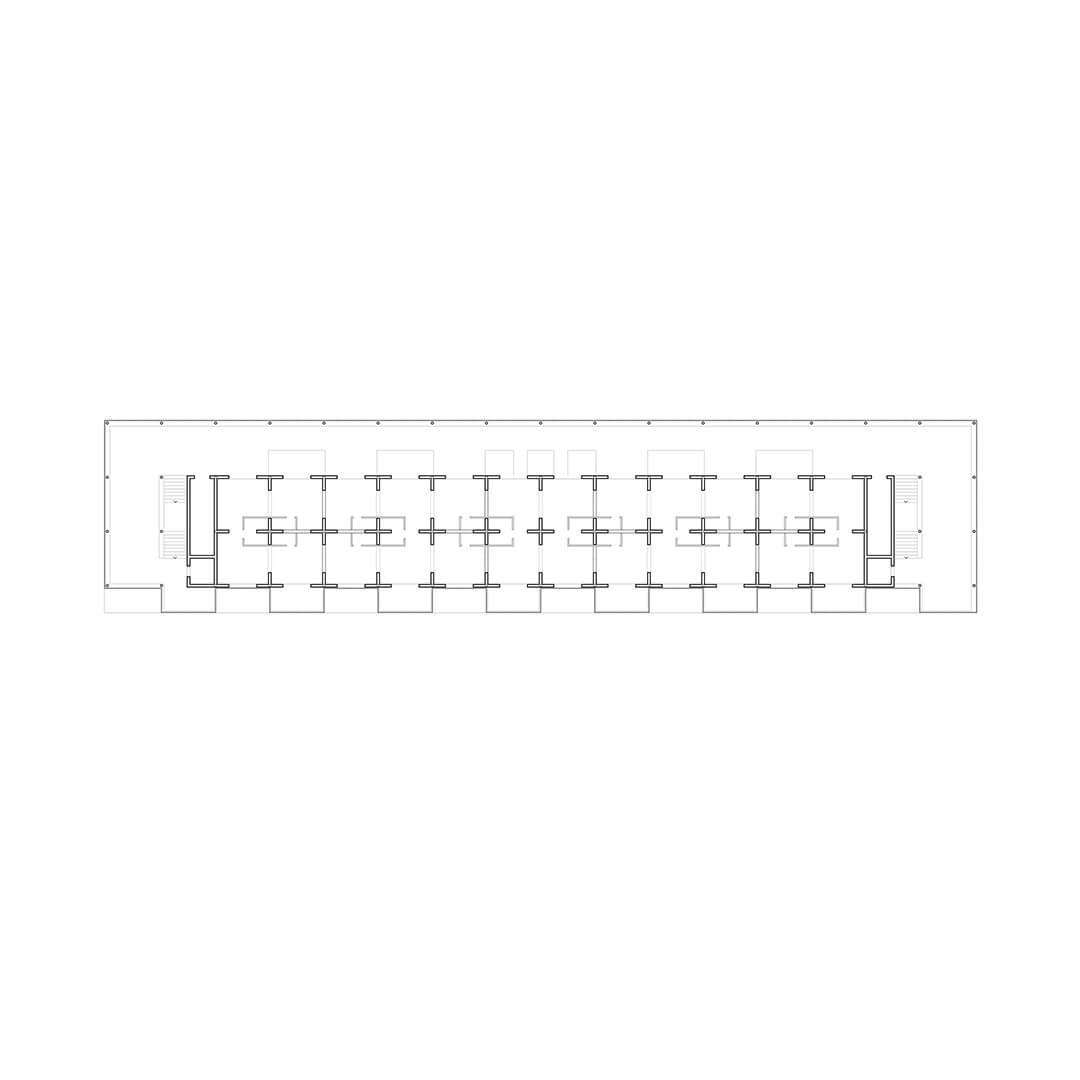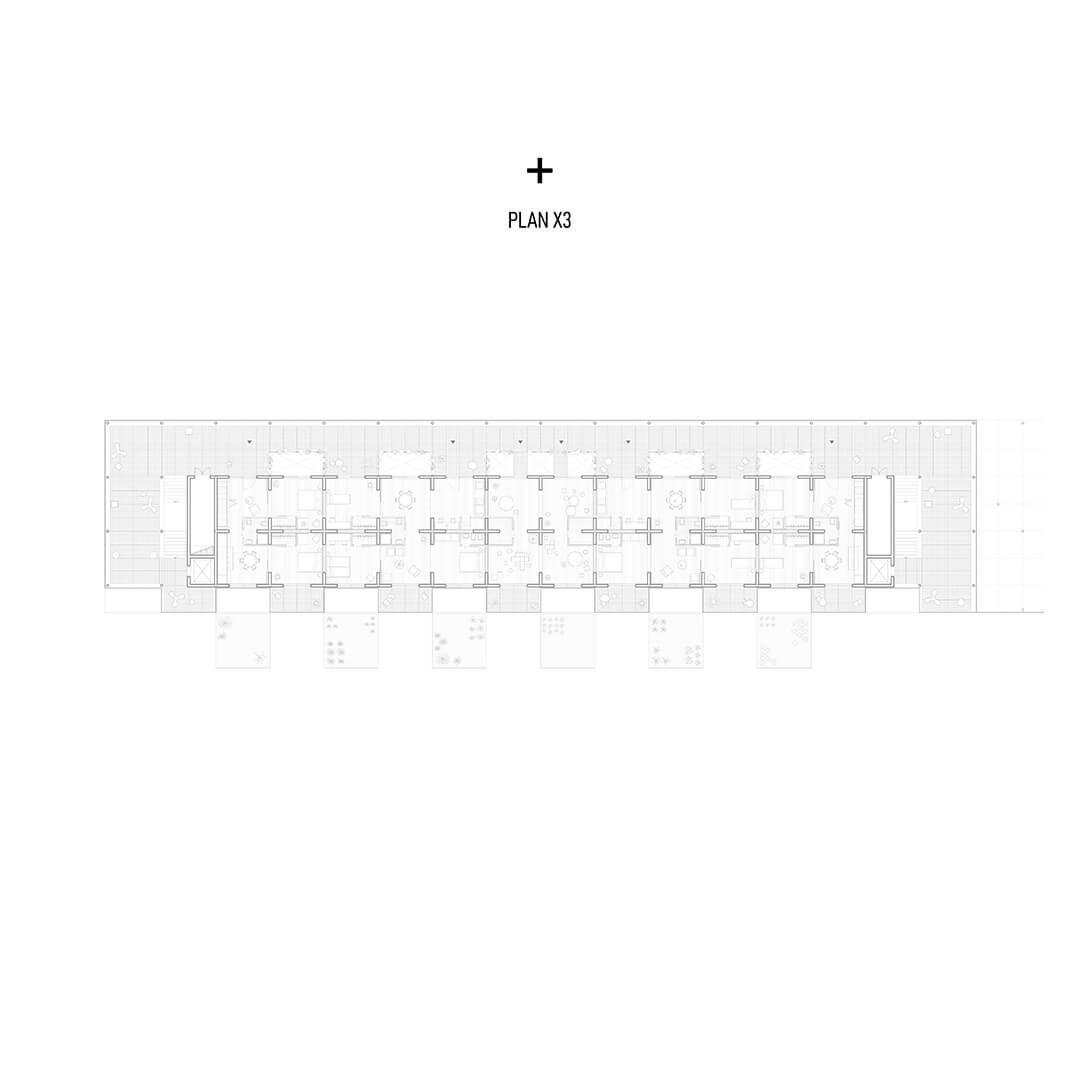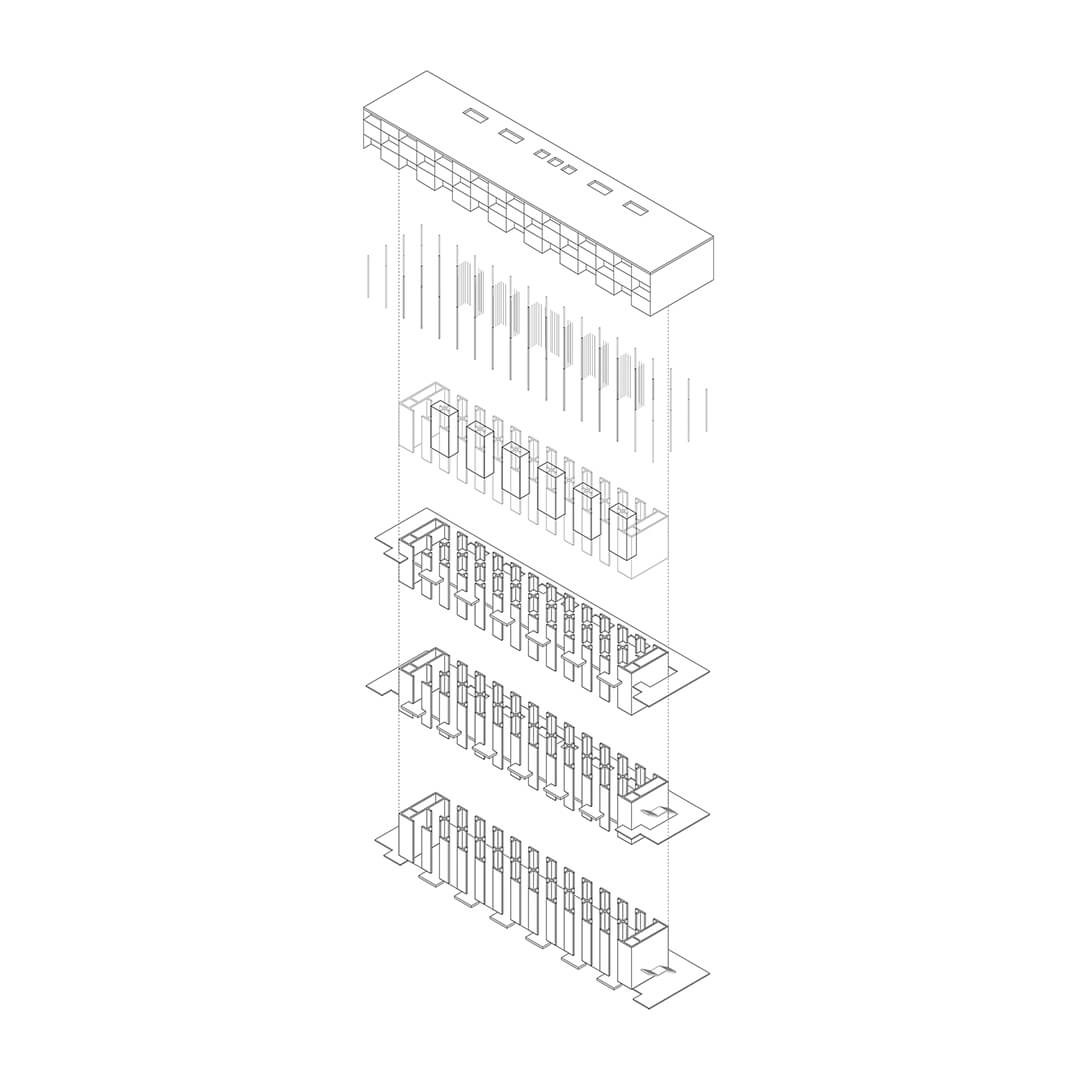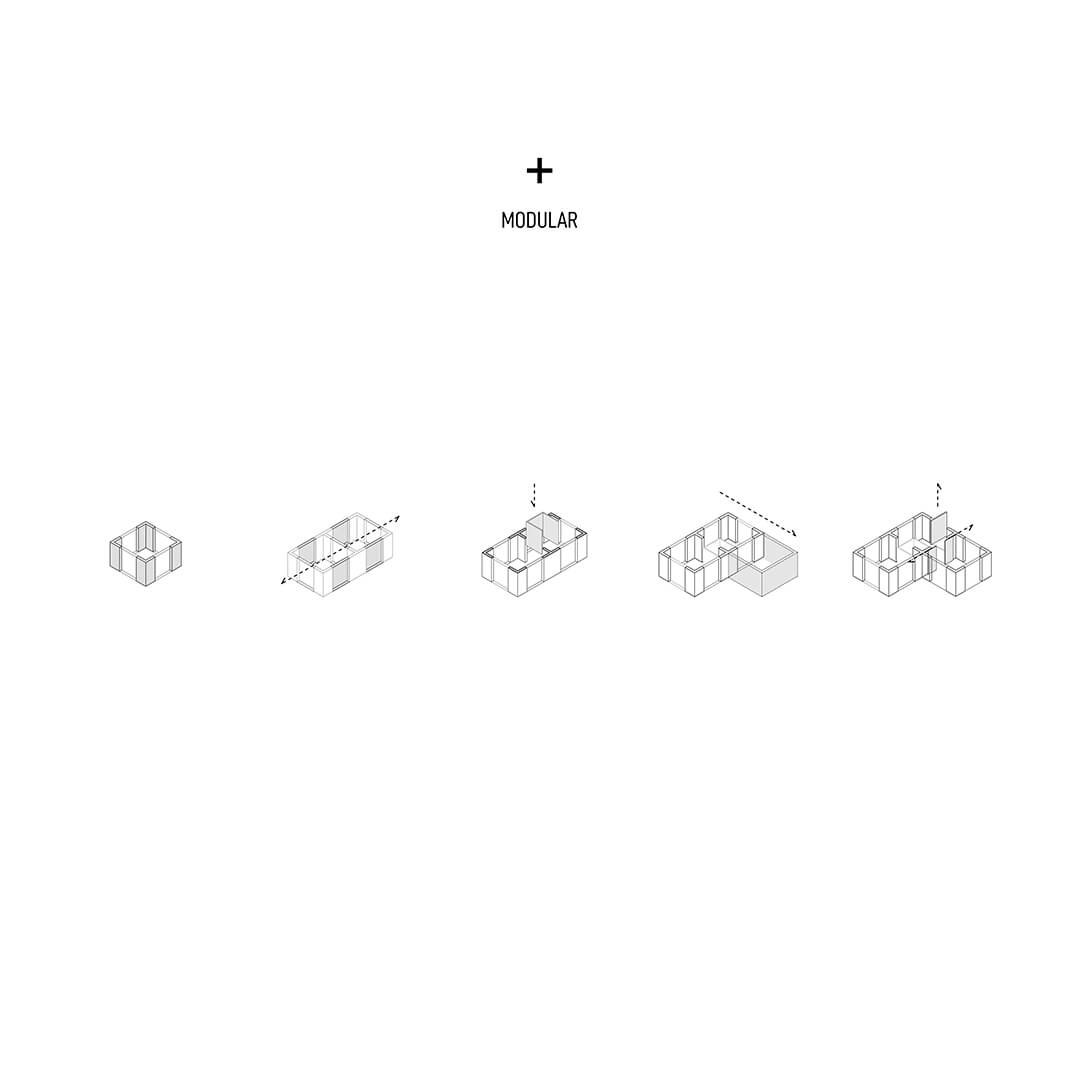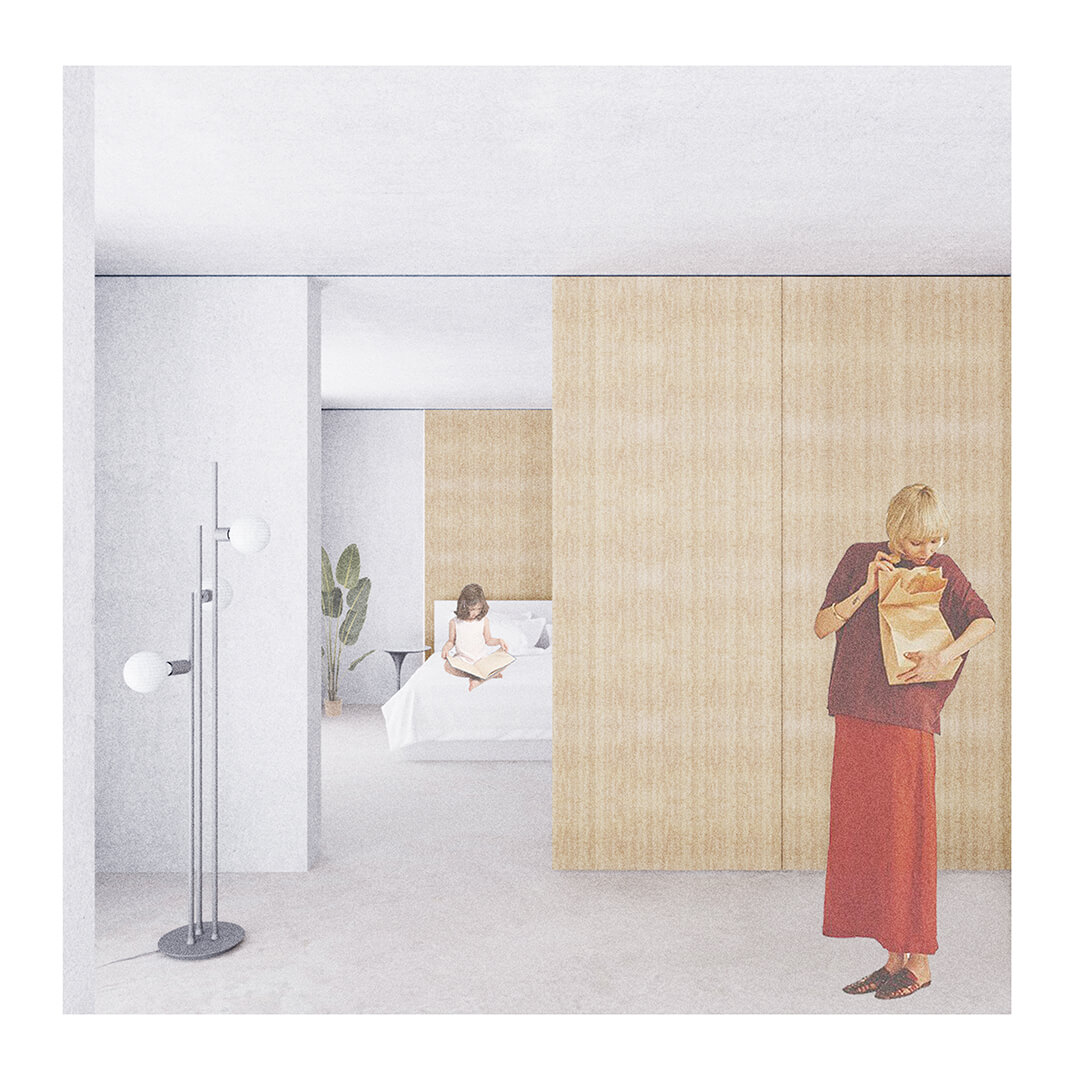Caterina Fabiani
Porto Novo is a degree thesis aimed at the redevelopment of the Empoli Vecchio’s villa farm, which becomes a new urban center and a social and functional “attractor”, while maintaining its historical memory.
Porto Novo aims to restore the strategic role it has always had within the city to the Empoli Vecchio area. Through a redevelopment intervention, a metamorphosis of the farm villa takes place, so that it becomes a new urban center and a social and functional “attractor”, while maintaining its historical memory.
The project is part of a currently active urban regeneration plan of the city, aimed at the recovery of historical complexes. With the creation of meeting and socialization spaces, the concept of Porto takes on a deeper meaning, metaphorically transforming itself into a place “trafficked” by people, where human relations and social relationships are exchanged. The project develops the concept of city that has taken shape in recent years, or the “City of the quarter of an hour”, an idea that has strengthened and confirmed with the recent experience of lockdown, due to the Covid-19 pandemic, which has provided multiple points of reflection for the design of shared spaces and living. An innovative way of rethinking the city, made up of different areas that include living, working, cultural activities, goods, services, and the possibility of interacting socially with each other.
Porto Novo promotes a rethinking of the relationship between the ‘personal’ and the ‘social’ (a dialogue between the public and the private). The house must be an intimate and hospitable reality, capable of maintaining privacy but also of opening the doors to a positive exchange with the outside world. The volumetric graft with a residential function is made up of modular apartments and shared spaces. It is based on the concepts of flexibility and resilience, to cope with the needs and changes of the time. The common areas are used both for relaxation and socializing, and for the work and needs of the residents.
In this way a sense of community is born, where the house becomes a meeting place and a place for relationships. At the same time there is a return to the old way of living in which the home also becomes a work space. The project aims to welcome the past and enrich it with contemporary needs formally accepted in our language, so that the graft becomes the key to understanding the future.
Author: Caterina Fabiani.
Location: Empoly, Italy.
Year: 2020
